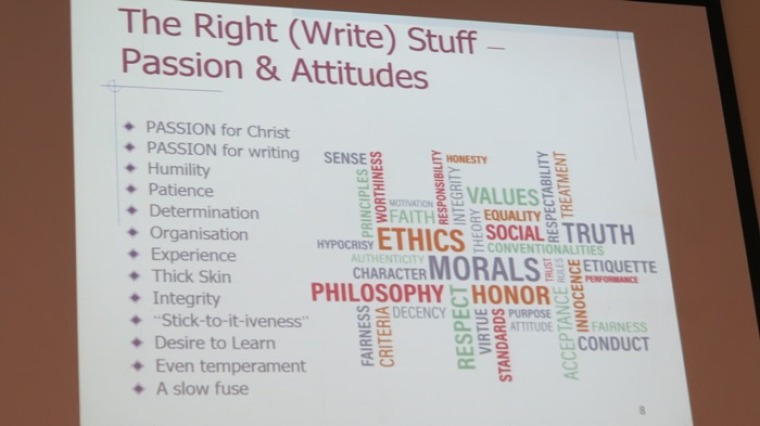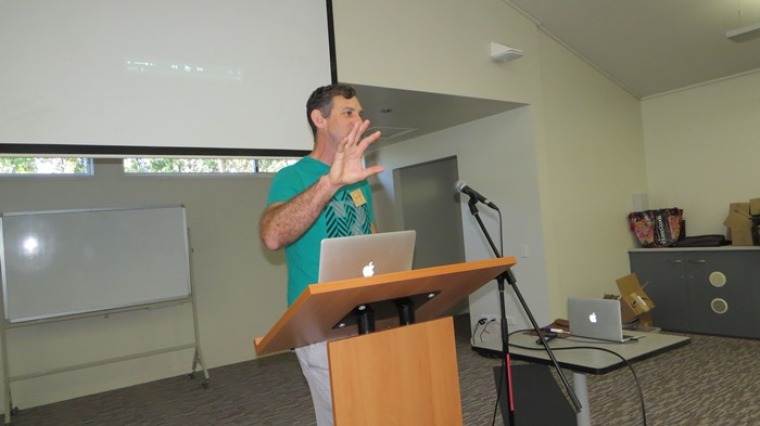

In 2009, work sent me down to Geelong. It was early October, and the whole city was literally covered in blue and white (and I mean the real meaning of literally, not and never "figuratively", no matter what the Oxford Dictionary might say is acceptable now - that's a betrayal I will never forgive).
Streamers, banners, murals, the whole city seemed to be celebrating the Grand Final win over Saint Kilda less than a week before.
Every Doggie has its Day
While perhaps not the whole of Melbourne is celebrating the victory by the Western Bulldogs this week, it seems like it's not just the West side of town that is excited to see the Doggies break a 61 year drought. I certainly was, despite the fact that it means that the Dees are now the holders of the dubious distinction of the current record for the longest time since a Premiership. Fortunately, we have ten years grace before we break the Footscray's all-time record, and if I were a betting man I'd happily put some money on us managing that.
Love for Losers
All sport is tribal, and AFL is no exception. Over a century of inherited loyalties have created fierce rivalries and ongoing feuds, and a depth of passion that can surprise, even scare, people looking in from the outside. So, why would people who have supported a different team their whole life, maybe seen then crash out agonisingly short—or even watched the Doggies knock them out of contention—suddenly be urging them on? How could they suddenly be so invested?
The reason is simple, and the same one that probably saw many of the same people supporting Geelong back in 2007 or, to cross codes, hoping the Cronulla-Sutherland Sharks would win their first National Rugby League premiership. The vast majority of us have a soft spot for battlers. We want to see the loser come good, and years of struggle finally paying off. And, if we are completely honest, it's nice to see teams who seem to act entitled to success taken down a peg or two.
Contrarian Confessions
Personally, I have always found myself siding with the underdog. During Australian's Golden Era, when partisan commentators seemed to delight in their dominance and people celebrated their thrashings of all comers, I was always hoping for an upset (I've written about this at length in previous columns so I will spare you the boredom of repetition).
But, even the most one eyed Australian cricket fan would have to admit that two of the greatest cricket series played by that awe inspiring cricket team—in fact probably in the top five Test series of all time—were the ones they lost, against India in 2001 and England in 2005. Especially in the latter, Australia were expected to win, and certainly in the Ashes the players themselves seemed to feel that they were entitled to victory, rather than it being something to be earned.
Instead, we saw the underdogs somehow find a way to win when there should have been no chance. We saw moments of individual brilliance, and acts of incredible defiance as players refused to bow to the expectations of everyone watching. And, the spectators responded, buying into the drama and becoming emotionally invested in the results regardless of where their first loyalties might lie, won over by the sight of teams refusing to surrender to the narrative of Australian supremacy.
The Greatest Story Ever Told (well, except that one)
Pretty much every sports movie is a riff on this basic story line. You have the hero/heroine/team of plucky battlers who are not meant to have any chance of triumphing, and usually coming up someone who is bigger or stronger or faster or more talented...well, you get the idea. Throw in some unexpected tragedy, or a seemingly insurmountable obstacle, and there you go. Sure, sometimes they will mix it up by letting them lose in the right way, but you can pretty much predict what will happen and each story beat comes at exactly the right time—and there you go, that's about 99% of sports movies.
The reason why this works so well despite being done so often is because it is what we want in real life—and often get to see. One of the things we love about sport is it is full of these minor miracles. Sometimes they are more than minor, sometimes an underdog triumphing against the odds has social ramifications far beyond the sporting arena. The exploits of athletes like Jessie Owens and Jackie Robinson made lies of the theories of racial superiority preached by small minded men, and inspired people to believe that we could be better than that.
Inspiration via Perspiration
And, I think that might be what lie at the heart of our love for the underdog. Their triumphs inspire us to believe that we, too, might be able to find a way to overcome the hand life has dealt us. The majority of us will never be elite athletes, or even adequate ones, we will never find success effortless or easy to come by. No wonder we identify we those who seem to struggle the way we do, who haven't had it handed to them, who make us believe that even losers can be winners. Most of us feel like we have more in common with the battlers who fail over and over again and keep on getting up again, then the people who seem to just glide through life.

Most of all, when the underdog comes out on top, when the Bulldogs break a drought older than most of the people I work with or England win the Ashes against one of the greatest teams ever to walk onto a cricket field, it makes us believe that nothing is impossible and that even the most ridiculous of dreams can come true—even some of ours.
David Goodwin is a freelance writer based in Melbourne. He is a cricket tragic, having run a cricket club and a cricket association, and attempts to hit sixes and bowl legspin as often as possible
David Goodwin's archive of articles may be viewed at http://www.pressserviceinternational.org/david-goodwin.html